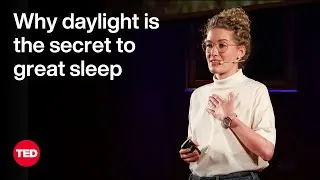Weak Forms - How to Pronounce Weak Forms in English
346,242 views ・ 2017-11-03
請雙擊下方英文字幕播放視頻。
00:01
Hi I'm Oli.
0
1790
1320
您好,我是Oli。
00:03
Welcome to Oxford Online English.
1
3110
2350
歡迎來到Oxford Online English。
00:05
In this lesson you can learn about weak forms
in English.
2
5460
4580
在本節課,您可以學習英文的輕讀音。
00:10
Weak forms are a really important pronunciation
point.
3
10040
5059
輕讀音是很重要的發音要點。
00:15
Learning about weak forms can help your speaking,
of course, but if can also make a big difference
4
15099
5331
學習輕讀音會對您的口說有幫助,當然,
但是否英文聽力
00:20
to your English listening.
5
20430
2450
會有很大提高。
00:22
Let's see how.
6
22880
2010
我們來看會怎樣。
00:24
Listen to a sentence:
7
24890
1529
聽一句話:
00:26
I gave her a box of chocolates for her birthday.
8
26419
5061
因為她生日,我給了她一盒巧克力。
00:31
So, what are weak forms?
9
31480
4910
有哪些輕讀音?
00:36
Some words have two possible pronunciations.
10
36390
3100
有些字彙有兩種可能的發音。
00:39
For example, think about the word for in this
sentence.
11
39490
6290
例如,想想這個句子或這個句子的字彙。
00:45
If you just read the word by itself, you’ll
probably say /fɔː/.
12
45780
5140
如果自己僅讀字彙,您可能說/fɔː/。
00:50
However, in the sentence, its pronunciation
is different.
13
50920
5210
但是,在句子裡,它的發音是不同的。
00:56
It becomes /fə/.
14
56130
2350
會是/fə/。
00:58
So, the word for has a weak form.
15
58480
4780
所以,字彙有輕讀音。
01:03
Its pronunciation changes.
16
63260
2710
它的發音改變了。
01:05
This isn’t just because we’re saying it
very fast.
17
65970
3430
這不僅僅是因為我們說的很快。
01:09
It has a different sound: /ə/ instead of
/ɔː/.
18
69400
6200
它有不同的聲音:/ə/取代了/ɔː/。
01:15
Can you see any other weak forms in our sentence?
19
75600
3150
您還可以在我們的句子裡看到其他的輕讀音嗎?
01:18
Her, a and of are also weak.
20
78750
5240
在這,a和of也是輕讀音。
01:23
Try it!
21
83990
1150
試試吧!
01:25
Read the sentence.
22
85140
1269
讀下句子。
01:26
Try to pronounce the weak forms:
23
86409
3131
試一下發輕讀音:
01:29
I gave /hərə/ box /əv/chocolates /fəhə/
birthday.
24
89540
4420
I gave /hərə/ box /əv/chocolates /fəhə/
birthday.
01:33
So, do all words have weak forms?
25
93960
4140
那麼,所有字彙是不是都有輕讀音?
01:38
No, there are many words which have weak forms,
but not all words do.
26
98100
7170
不是的,有很多字彙有輕讀音,
但並非所有字彙都有輕讀音。
01:45
In this lesson, you’ll see which words have
weak forms, when to use them, and how to pronounce
27
105270
5830
在本節課裡,您會看到有輕讀音的字彙,
什麼時候用他們,以及怎樣正確地
01:51
them correctly.
28
111100
4510
發他們的輕讀音。
01:55
Words which have weak forms are often ‘grammar’
words.
29
115610
5420
有輕讀音的字彙常常是“語法”字彙。
02:01
Words which carry the main meaning of a sentence
don’t usually have weak forms.
30
121030
5900
表達句子主要含義的字彙,
通常沒有輕讀音。
02:06
That means most nouns, verbs, adjectives and
adverbs don’t have weak forms.
31
126930
7529
這意味著大多數的名詞、動詞、
形容詞和副詞都沒有輕讀音。
02:14
Prepositions like to, for, as, of or at have
weak forms.
32
134459
6661
介詞,如to、for、as、of或at有輕讀音。
02:21
Pronouns like you, your, that or there can
have weak forms.
33
141120
5959
代詞,像是you、your、that或是there
可以有輕讀音。
02:27
Some conjunctions like and or but can also
have weak forms.
34
147079
5610
某些連接詞,例如and或but也可能有輕讀音。
02:32
Also, auxiliary verbs often have weak forms.
35
152689
4231
同樣,助動詞通常有輕讀音。
02:36
That means words like do, does, was, would,
can, are, and so on.
36
156920
6480
這意味著像是do、does、was、
would、can、are
諸如此類的字彙。
02:43
Lots of information, I know!
37
163400
2009
資訊太多了,我知道!
02:45
Let’s do some examples.
38
165409
3021
我們來用一些例子。
02:48
Look at a sentence:
39
168430
2449
看一個句子:
02:50
Are you coming to the cinema with us tomorrow?
40
170879
4261
您明天會和我們一起去電影院嗎?
02:55
There are five weak forms in this sentence.
41
175140
3810
這句話有五個輕讀音。
02:58
Can you find them? Listen one more time.
42
178950
4730
您可以找到嗎?再聽一遍。
03:03
Are you coming to the cinema with us tomorrow?
43
183680
4900
您明天會和我們一起去電影院嗎?
03:08
Can you hear where the weak forms are?
44
188580
3579
您可以聽出輕讀音在哪裡嗎?
03:12
The weak forms are:
45
192159
1840
輕讀音是:
03:13
Are, which is pronounced /ə/.
46
193999
3471
Are,發音是/ə/。
03:17
You, which becomes /jə/.
47
197470
3290
You,發音是/jə/。
03:20
To, which is pronounced /tə/.
48
200760
3899
To,發音是/tə/。
03:24
The.
49
204659
1780
The。
03:26
The is almost always weak, but it is technically
a weak form: /ðə/.
50
206439
4890
The幾乎總是輕讀音,
但是他是一個技術上的輕讀音/ðə/。
03:31
Finally, us is weak; it becomes /əs/.
51
211329
5860
最後,us是輕讀音;他發音是 /əs/。
03:37
So you can see that the weak forms are the
auxiliary verb (are), the pronouns (you, us),
52
217189
8280
這樣,您可以看到輕讀音是助動詞(are)、
代詞(you、us)、
03:45
and the preposition (to).
53
225469
3671
和介詞(to)。
03:49
Also, do you notice anything about the pronunciation
of the weak forms?
54
229140
6189
此外,您有沒有注意到有關輕讀音發音的
任何事情嗎?
03:55
In all of the weak forms, you can see this
sound: /ə/.
55
235329
4800
在所有輕讀音裡,您都可以看到這個音:/ə/。
04:00
This sound, the schwa, is common in weak forms.
56
240129
3590
這個音,schwa在輕讀音裡很常見。
04:03
Almost all weak forms have a schwa sound.
57
243719
3120
幾乎所有的輕讀音都有一個schwa音。
04:06
Let’s do one more example, for practice.
58
246839
3600
我們再用一個例子來練習。
04:10
Listen to another sentence:
59
250439
3160
聽另外一句話:
04:13
What does he do at the weekends?
60
253599
2790
週末他做什麼?
04:16
Can you hear the weak forms?
61
256389
1711
您可以聽到輕讀音?
04:18
If not, can you guess which words are weak
here? Listen one more time.
62
258100
7740
如果不可以,那您可以猜出在這裡哪些字彙
是輕讀音嗎?再聽一遍
04:25
What does he do at the weekends?
63
265840
4140
週末他做什麼?
04:29
Does is weak.
64
269980
1920
Does是輕讀音。
04:31
It’s pronounced /dəz/.
65
271910
3160
發音是/dəz/。
04:35
At is also weak.
66
275070
2110
At也是輕讀音。
04:37
It becomes /ət/.
67
277180
3250
發/ət/音。
04:40
The is weak, as before: /ðə/.
68
280430
4130
The是輕讀音,像之前一樣: /ðə/。
04:44
So, here’s a question: why is does weak
but do is not?
69
284560
7740
這樣,有一個問題:為什麼Does是輕讀音?
但do不是?
04:52
It’s because does is an auxiliary verb.
70
292300
3740
那是因為does是一個助動詞。
04:56
It’s just there to make a question; it doesn’t
add any meaning to the sentence.
71
296040
6290
這就有一個問題;他在句子裡沒有任何含義。
05:02
Do is the main verb.
72
302330
1930
Do是主要的動詞。
05:04
It carries meaning.
73
304260
2100
帶有含義。
05:06
Words which carry meaning have their full
pronunciation, and won’t be weak.
74
306360
4990
有含義的字彙發音完整,不會發輕音。
05:11
Again, you can see that all of the weak forms
have the schwa sound: /ə/.
75
311350
6490
再次,您可以看到所有輕讀音都有schwa音:/ə/。
05:17
There are many more weak forms, but the number
of words with weak forms is limited.
76
317840
6290
輕讀音有很多,但是輕讀音的字彙數量
是有限的。
05:24
Depending on how you define ‘weak form’,
there are maybe 30-60 words which have weak
77
324130
4720
依據您定義“輕讀音”的方式,
大約30-60個字彙是有
05:28
pronunciations.
78
328850
2110
輕讀音發音。
05:30
For now, remember the general idea: ‘grammar’
words like prepositions, pronouns and auxiliary
79
330960
7340
現在,記住一般的觀念:“語法”字彙,
像是介詞、代詞和
05:38
verbs often have weak forms.
80
338310
2890
助動詞通常有輕讀音。
05:41
Okay, so now you know a bit about weak forms,
but when should you use them?
81
341200
5560
好了,現在您對輕讀音有了一點了解,
但是什麼時候要用他們呢?
05:50
In an English sentence, some words are pronounced
with more stress than others.
82
350550
5870
在英文句子裡,某些字彙的發音
比其他的更重。
05:56
Generally, the words which carry the main
meaning are stressed, while ‘grammar’
83
356430
5740
通常,有主要含義的字彙
發音是重的,同時“語法”
06:02
words like prepositions, pronouns and so on
are not stressed.
84
362170
5730
字彙,類似介詞、代詞之類的
不會重讀。
06:07
Words which are not stressed can be weak forms.
85
367900
4050
不是重讀的字彙可以輕讀。
06:11
For example:
86
371950
1480
例如:
06:13
How long have you been waiting here?
87
373430
3440
您在這裡等了多久?
06:16
Can you hear which words are stressed?
88
376870
4380
您可以聽到那些字彙是重讀音嗎?
06:21
The words how, long and waiting are stressed:
89
381250
5420
how、long和waiting是重讀音:
06:26
HOW LONG have you been WAITING here?
90
386670
3760
HOW LONG have you been WAITING here?
06:30
The unstressed words can be weak.
91
390430
4640
不是重讀音的字彙可以輕讀。
06:35
Have and you have weak forms.
92
395070
3070
Have和you有輕讀音。
06:38
They’re pronounced together.
93
398140
2030
他們合併發音。
06:40
You say: /əvjə/.
94
400170
3660
您說:/əvjə/。
06:43
Been and here aren’t stressed, but these
words don’t have weak forms, so the pronunciation
95
403830
5850
Been和here不是重讀的,但是這些字彙
沒有輕讀音,所以發音
06:49
stays the same.
96
409680
1650
保持不變。
06:51
Let’s do one more example:
97
411330
3110
我們再用一個例子:
06:54
I could have done more if I’d had more time.
98
414440
4810
如果我有更多的時間,
我可以做得更多。
06:59
Which words are stressed here, and which words
do you think are weak?
99
419250
5450
您認為在這裡哪些字彙是重讀的,哪些是輕讀的?
07:04
Listen one more time.
100
424700
2980
再聽一遍
07:07
I could have done more if I’d had more time.
101
427680
4740
如果我有更多的時間,
我可以做得更多。
07:12
The stressed words are done, more, had, more
and time.
102
432420
7000
重讀的字彙是done、more、had、more和time。
07:19
The weak forms are could and have.
103
439420
4170
輕讀的是could和have。
07:23
Had is also weak in the contraction I’d;
a contraction like I’d is really just a
104
443590
6280
Had在他的縮寫形式I'd也是輕讀的;
一個縮寫形式像是I'd真的只是
07:29
weak form which is written.
105
449870
2690
像寫的那樣輕讀。
07:32
So, could have is pronounced /kədəv/.
106
452560
5560
所以,他可以發/kədəv/。
07:38
The other unstressed words, like if and I,
don’t have weak forms, so their pronunciation
107
458120
5990
其他的非重讀的字彙,像是if和I,
沒有輕讀音,所以他們的發音
07:44
doesn’t change.
108
464110
2430
不變。
07:46
Okay, so now you know that weak forms are
words with two possible pronunciations, and
109
466540
5820
好吧,現在您知道輕讀音的是那些有
兩種可能的發音的字彙,並且
07:52
you know when to use the weak pronunciation
of a word.
110
472360
3970
您知道什麼時候用一個字彙的輕讀音。
07:56
But, if there are two possible pronunciations,
what about the other one?
111
476330
5390
但是,如果有兩個可能的發音,那麼另一個呢?
08:05
The opposite of a weak form is a strong form.
112
485060
4430
輕讀音的反義詞是重讀音。
08:09
You know that weak forms depend on sentence
stress.
113
489490
3620
您知道輕讀取決於句子的重讀。
08:13
However, sentence stress is not fixed.
114
493110
4860
但是,句子的重讀不是固定的。
08:17
Sentence stress depends on the situation,
and the exact ideas you’re trying to express.
115
497970
5400
句子重讀取決於語境和您想要表達的確切想法。
08:23
Let’s look at an example we saw before:
116
503370
4360
我們再看下之前的示例:
08:27
How long have you been waiting here?
117
507730
2880
您在這等了多久?
08:30
We said that in this sentence, the stressed
words would normally be how, long and waiting.
118
510610
7699
我們說過,在這句話裡,
重讀的字彙通常來說是how、long和waiting。
08:38
However, imagine you’re talking to several
people.
119
518309
4970
但是,您想像一下,您正在和幾個人交談。
08:43
You ask the question to one person, but a
different person answers.
120
523279
5181
您問其中一個人一個問題,但是另一個人卻回答了。
08:48
You ask person A, but person B thinks you’re
talking to him, and he answers instead.
121
528460
5619
您問A,但B認為您在和他說話,他來回答了。
08:54
So, you ask the question again to person A.
This time, it sounds different:
122
534079
6320
所以,您再問A一次。這次看起來有點不一樣:
09:00
How long have YOU been waiting here?
123
540399
3891
How long have YOU been waiting here?
09:04
Why does it sound different?
124
544290
1510
為什麼看起來不一樣?
09:05
And what’s the difference?
125
545800
3310
有什麼區別?
09:09
This time, you’re emphasising the word you,
because you want to make it clear who you’re
126
549110
5200
這次,您強調了you這個字彙,
因為您清楚地表達了您在
09:14
talking to.
127
554310
2399
和誰說話。
09:16
That means that you is pronounced with its
full pronunciation: /jʊː/.
128
556709
6491
這就是說您會發完整的音:/jʊː/。
09:23
Let’s do one more example.
129
563200
2100
我們再用一個例句。
09:25
We’ll look at another sentence from before:
130
565309
2911
我們看下之前的另一句話:
09:28
Are you coming to the cinema with us tomorrow?
131
568220
4540
明天您會和我們一起去電影院嗎?
09:32
Normally, the stressed words would be coming,
cinema and tomorrow.
132
572760
5540
通常來說,重讀的字彙會是
coming、cinema和tomorrow。
09:38
However, imagine that you thought your friend
wasn’t coming.
133
578300
5289
但是,假設您認為您的朋友不會去。
09:43
Someone had told you that she was busy, and
couldn’t come with you.
134
583589
5151
有人告訴您她很忙,不能和您一起去。
09:48
So now, when you ask the question, it sounds
different:
135
588740
4870
所以,當您問她問題時,看起來有點不一樣了:
09:53
ARE you coming to the cinema with us tomorrow?
136
593610
5280
ARE you coming to the cinema
with us tomorrow?
09:58
This time, you emphasise the word are, because
you thought your friend couldn’t come, and
137
598890
5639
這次,您強調一個字彙are,因為
您認為您的朋友不會來,並也
10:04
you’re showing surprise.
138
604529
2011
顯得很吃驚。
10:06
So, if you want to emphasise a word, you should
use the strong form.
139
606540
5370
所以,如果您強調一個字彙,
您必須用強讀。
10:11
Strong forms have the full pronunciation.
140
611910
4080
強讀有完整的發音。
10:15
Emphasis depends on meaning, so the same word
in the same sentence can be pronounced differently
141
615990
6399
強調取決於意思,因此在不同語境下,
同一個句子裡
10:22
in different situations.
142
622389
1820
相同的字彙的發音可能不同。
10:24
There’s one more rule: the last word of
a sentence can never be weak.
143
624209
6870
還有另一個規則:句子的最後一個
字彙重來都不是輕讀的。
10:31
For example:
144
631079
1000
例如:
10:32
What are you looking at?
145
632079
2891
您在看什麼?
10:34
The stressed words here are what and looking.
146
634970
4380
重讀的字彙是在這您要找的。
10:39
Are and you are weak; they’re pronounced
/əjə/.
147
639350
7390
Are和you是輕讀;他們發/əjə/音。
10:46
At has a weak form, and it’s not stressed
in this sentence.
148
646740
4699
At有一個輕讀,
在這句話裡不重讀。
10:51
However, the last word of a sentence can’t
be weak.
149
651439
4380
但是,句子最後一個字彙是不能輕讀的。
10:55
That means at gets its full pronunciation,
/æt/.
150
655819
4101
這就是說要完整發音,/æt/。
10:59
Now, hopefully you understand what weak forms
are, when to use them, and when not to use
151
659920
6529
現在,我們希望您了解什麼是輕讀,
什麼時候用他們,什麼時候
11:06
them.
152
666449
1050
不用他們。
11:07
So, let’s do some practice!
153
667500
3280
這樣,我們做一些練習!
11:13
First, look at three sentences:
154
673680
3520
首先,看三個例句:
11:17
Think about which words will be stressed,
and which words will be weak forms.
155
677200
5340
考慮哪些字彙要重讀,
以及哪些字彙要輕讀。
11:22
Pause the video and think about it if you
need more time.
156
682540
4740
如果您需要更多時間,
暫停影片,考慮一下。
11:27
Next, I’ll read the sentences.
157
687280
3080
接下來,我會唸這些例句。
11:30
Listen for stressed words and weak forms.
158
690369
3861
聽一下重讀的字彙和輕讀的字彙。
11:34
Were your ideas right?
159
694230
1510
您覺得是對的嗎?
11:36
Does she really think she should do it?
160
696900
2960
她真的以為她應該這樣做?
11:39
What did you do to your hair?
161
699860
3440
您的頭髮怎麼了?
11:43
What were you doing when she called you?
162
703300
2640
她打給您時,您在做什麼?
11:45
Let's look together.
163
705940
2060
我們一起看下。
11:48
Does she really think she should do it?
164
708000
3600
她真的以為她應該這樣做?
11:51
Here, really, think and do are stressed.
165
711600
5480
在這裡,really、think和do要重讀。
11:57
Does and should are weak.
166
717089
4500
Does和should要輕讀。
12:01
Try saying the sentence with the stress and
weak forms.
167
721589
3821
試著用重讀和輕讀唸例句。
12:05
Repeat after me:
168
725410
2799
跟我重複一遍:
12:08
Does she really think she should do it?
169
728209
5791
Does she really think she should do it?
12:14
Try once more, a little faster:
170
734000
4050
再試一次,唸快一點:
12:18
Does she really think she should do it?
171
738050
6310
Does she really think she should do it?
12:24
How was that?
172
744360
1579
怎樣?
12:25
Can you pronounce the weak forms correctly?
173
745939
3870
您可以正確地發輕讀音嗎?
12:29
One important point: weak forms are always
connected to the words before and after.
174
749809
6690
要點一:輕讀始終和前後的字彙相連接。
12:36
So does needs to be joined to she: /dəsʃi/
175
756499
6430
所以,does要和she連起來:/dəsʃi/
12:42
Should needs to be pronounced together with
she and do: /ʃiʃəd.dʊː/
176
762929
6541
Should要和she及do一起發音:/ʃəiʃəd.dʊː/
12:49
Let’s look at our next sentence:
177
769470
4669
我們看下個例句:
12:54
What did you do to your hair?
178
774139
2541
您的頭髮怎麼了?
12:56
Here, what, do and hair are stressed.
179
776680
5339
Here、what、do和hair要重讀。
13:02
You, to and your are weak.
180
782019
5151
You、to和your要輕讀。
13:07
Try saying the sentence with the stress and
weak forms.
181
787170
3260
試著用重讀和輕讀唸例句。
13:10
Repeat after me:
182
790430
2899
跟我重複:
13:13
What did you do to your hair?
183
793329
5451
What did you do to your hair?
13:18
Let’s try again, at natural speed:
184
798780
3980
我們再試一次,用自然速度:
13:22
What did you do to your hair?
185
802780
5480
What did you do to your hair?
13:28
Okay, let’s look at our last sentence:
186
808260
5150
好了,我們看下最後一句:
13:33
What were you doing when she called you?
187
813410
2990
她打給您時,您在做什麼?
13:36
Here, what, doing and called are stressed.
188
816400
6260
Here、what、doing和called要重讀。
13:42
Were and you are weak.
189
822660
3899
Were和you要輕讀。
13:46
The you on the end is not stressed, but not
weak, either, because it’s the last word
190
826559
5810
那個在句末的you不重讀,
但也不要輕讀,因為它是
13:52
of the sentence.
191
832369
2891
句子的最後一個字彙。
13:55
Try saying the sentence with the stress and
weak forms.
192
835260
2819
試著用重讀和輕讀來唸例句。
13:58
Repeat after me:
193
838079
2760
跟我重複:
14:00
What were you doing when she called you?
194
840840
3580
What were you doing when she called you?
14:04
Let’s try again, at natural speed:
195
844420
5380
再試一次,用自然速度:
14:09
What were you doing when she called you?
196
849800
3860
What were you doing when she called you?
14:13
Remember, if you want more practice, you can
review this section and try as many times
197
853660
5560
請記住,如果您想多練習,
您可以複習本節課並根據您的需要
14:19
as you need to!
198
859220
1920
多試幾次!
14:21
Okay, hopefully you've learned something new about weak forms and English pronunciation.
199
861140
7000
好吧,我們希望您會了解輕讀和
英語發音的新知識。
14:28
Check out our website for more free lessons like this:
200
868140
2700
請訪問我們的網站來得到
更多類似的免費課程:
14:30
Oxford Online English.com.
201
870840
2840
Oxford Online English.com.
14:33
Thanks for watching, see you next time!
202
873680
2000
感謝收看,下次見!
New videos
關於本網站
本網站將向您介紹對學習英語有用的 YouTube 視頻。 您將看到來自世界各地的一流教師教授的英語課程。 雙擊每個視頻頁面上顯示的英文字幕,從那裡播放視頻。 字幕與視頻播放同步滾動。 如果您有任何意見或要求,請使用此聯繫表與我們聯繫。







